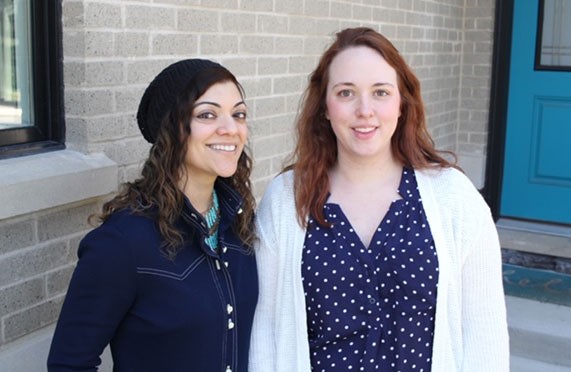Zahra Suratwala: My story was the opposite. I’ve never followed politics in any way, shape, or form. When Donald Trump won, I felt a responsibility to educate myself, do more, and be more informed. So I became more of an activist, which I did by participating in marches and things like that. All of that felt good at first, but it didn’t feel like it was having really deep, lasting effects.
Then I was watching [Obama’s farewell] speech, and he basically said, “If you are dissatisfied in any way, grab a clipboard, get some signatures, and just run for office.” The flippancy with which he said “Run for office” was what planted a seed in my mind. I had always considered running for office something that only certain people could do. I am educated, but I don’t have a background in politics, or any family connections. I started to see myself in a different light. Being intelligent, hardworking, driven, and kind can actually be the groundwork that you need to run for office, as opposed to just having been groomed to do so. That was what lit my fire.
Beck: And you ended up running for the same seat on the county board?
Zahra: There were two seats opening up, so we were running for two [separate] seats. We were not in opposition with one another.
Beck: Were you the only two Democrats running for those seats?
Ashley: Yes. [When we ran] in 2018, there were two four-year terms that were up.
Beck: When did you first hear about each other, and when did you meet?
Zahra: Really early on. We met while writing petitions, which is the very beginning [of the process] when you’re starting to get signatures so that you can get on the ballot. At the Democratic Party’s DuPage County office, we were introduced to one another. The vibe from that first meeting was: We’re both totally out of our element, but we are confident that we can do this, so how can we help each other?
Ashley: DuPage County has always been the Republican bastion in the northern part of the state. [That year] was the first time Democrats had a real opportunity to win a bunch of seats on the board, which we did. Maybe there should’ve been some animosity, but we’re both naturally not drawn to unnecessary conflict.
Zahra: In that first meeting, we said, “Let’s not spend any money on the primary, because we’re going to need it all in the general.” That lightened the pressure a lot.
Ashley: We got the gift of an uncontested primary, pretty much. Then we got to work together in the general, which was awesome.
Beck: In a lot of ways, you ran a collaborative campaign. How much of your respective campaigns did you run solo versus together?
Zahra: We had Facebook pages and Twitter accounts for our [individual] campaigns, and we would post on those as ourselves, but a lot of the content we were posting was stuff we were doing together. Those were the only things that were separate. Our platform was together and we made sure that we translated that onto our websites as well. Our literature was together; all of our efforts were together.
Source link
 Black America Breaking News for the African American Community
Black America Breaking News for the African American Community
